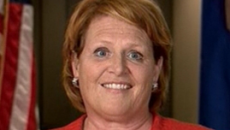When Shoddy Journalism Obscures A Real Public Policy Problem
Health care prices are out of control. I don’t think that’s a statement many in America would disagree with. But when reporters like the Fargo Forum’s Kyle Potter cover the issue, they often do the problem a real disservice. Potter has a story about prices charged at Fargo-area hospitals, prices that are below the national average but above what the federal government approves in the Medicare program.
See if you can spot the problem:
An analysis of 2011 data from the Center for Medicare Services shows that while Fargo’s two hospitals bill patients well below the national average for nearly all of the most common medical procedures, both hospitals still charged more than what Medicare determined to be a “fair and reasonable price” for treatments there.
The differences range from a few extra dollars more than Medicare covers for a standard doctor’s visit at Sanford Medical Center to the average billing cost of an MRI at Essentia Health, which was six times Medicare’s rate.
The problem with using Medicare coverage levels as the point of reference for what hospitals and doctors should charge is that those prices are completely arbitrary. Medicare is a massive social program which is in serious fiscal jeopardy. The rates the government approves for the program are arbitrary, and influenced more by politics than the realities of the health care markets.
Potter does quote a representative of the state’s hospitals, who argues that Medicare rates are grounded more in political realities than the real world, but then dismisses the comments as “echoing a common refrain among hospital administrators.”
Which isn’t so say that health care prices aren’t inflated. They are, absolutely. Americans are getting gouged when they go to the hospital. But the proper point of comparison isn’t the prices the government wants to pay, but rather what prices hospitals and doctors who have stepped away from America’s third-party insurance system are charging.
Hospitals like the Surgery Center of Oklahoma which is providing top-notch procedures at a fraction of the cost of other hospitals by operating as a cash-only business:
The problem with health care prices is that most Americans don’t pay those prices directly. Most of us pay through an insurer and, to add another layer of disconnect between health care and health care costs, most of us aren’t even the direct customers for our insurers. Most Americans get their health insurance through an employer or the government.
That disconnect has created a bubble in health care prices. As further evidence, consider the market for cosmetic surgery which, for the most part, isn’t covered by insurance. Because the consumers of cosmetic surgery services are paying for the services directly, costs in that area have actually declined even as they’ve soared in the rest of the health care industry:

The problem with health care prices isn’t that they aren’t meeting some arbitrary level set by government. It’s that they’re inflated due to a third-party insurance system that is incented by the government allowing premium payments to be deducted from employee paychecks pre-tax, if not outright provided by the government through programs like Medicare and Medicaid.
The only way to bring health care costs back down to earth is to make Americans individually responsible for paying for it. That, unfortunately, is not something that’s very politically popular.







